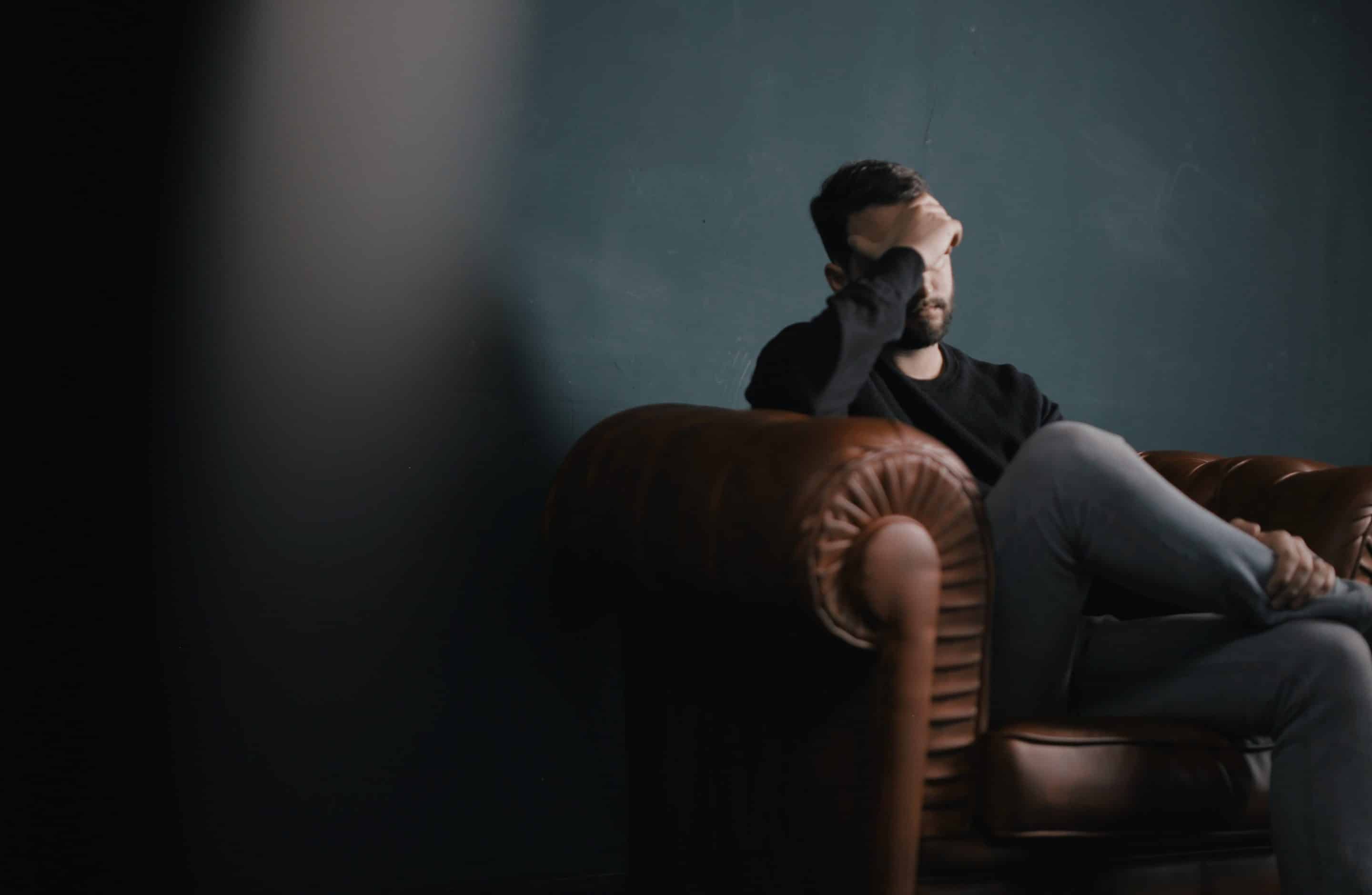In this article

Revenge porn is a relatively new phenomenon, driven by the widespread use of the internet and proliferation of digital devices. Revenge porn can have devastating consequences for its victims and offenders may now face custodial sentences.
The law in this area is incredibly complex and it may be difficult to understand what constitutes revenge porn and what effects any offence may have. In this article, our criminal law solicitors give a brief overview of everything you need to know about revenge porn.
If you have a case you think we can help with, contact our team via 0203 007 5500 or [email protected].
What is revenge porn?
Revenge porn refers to the distribution of private, sexually explicit materials of someone without their consent. Personal information may also accompany the photos or videos, for example, the subject’s name or address.
Revenge porn applies to both online and offline media. For example, the offender may distribute it by:
- Text, messaging apps (such as WhatsApp), or email
- Uploaded to the internet on social media sites, pornography sites, or forums
- Shown to someone physically
- Printed out or downloaded to a digital disk or memory stick and distributed
Typically revenge porn will involve one half of a couple, or former couple, distributing photos of their partner. The offender may often perceive this as ‘payback’ for an alleged wrongdoing.
Revenge porn can have severe consequences for its victims, potentially causing:
- Anxiety
- Depression
- Post Traumatic Stress Disorder (PTSD)
- Difficulties in current or future relationships
- Difficulties in current or future employment
In some cases, victims may lose or be unable to attend their current job, which can have financial consequences.
Is it just images displaying nudity?
No. The law considers any images deemed to be displaying behaviour or material that could reasonably be considered sexual and would not usually be seen in public, as potential revenge porn. For example, sexually provocative images would also be considered as revenge porn.

Talk to us now. Save costs further down the line.
Save yourself potentially thousands of pounds by seeking advice now. Speak to us today for more information.
Lines open 24/7

Is revenge porn a crime?
Yes. The UK has regarded revenge porn as a sexual offence in the UK since 2015 under Section 33 of the Criminal Justice and Courts Act.
Section 33 defines offences revenge porn as having two key distinctions:
- Disclosing a private sexual photograph or film without the consent of the subject(s) who appear in the photograph or film
- Disclosing this material with the intention of causing that individual distress
Sentencing can range from a fine, a community order, or up to 24 months’ imprisonment. If proven guilty, offenders are also be required to appear on the Sex Offender’s Register.
Factors influencing sentencing
During sentencing, a variety of factors will be under consideration:
Aggravating factors
- Degree of harm caused. For example, the level of distress/upset caused to the victim. This includes both the degree of psychological harm and practical harm, such as effects on employability
- Degree of culpability. This considers the level of planning involved as well as any attempts made to maximise harm – for example sharing with the victim’s employer or family. The court will also consider the degree of distribution and the persistence of the offender (for example, if the offender reuploads deleted content)
- Evidence of attempts to blackmail the victim. Otherwise known as sextortion, this involves the offender threatening the release of images to obtain financial gain or manipulate the victim emotionally
Mitigating factors
- The court will consider prior convictions. The court will also consider previous good behaviour
- Degree of remorse
- The age of the offender, as well as their maturity level
- Mental disorders or learning disabilities
Does revenge porn overlap with other crimes?
Sentencing may also consider overlapping offences in this area, which are common. Some examples of common overlaps here are:
- Blackmail
- Possession of indecent images. This relates to images or videos in which the subject(s) are under the age of 18 years old
- Voyeurism. This refers to the act of gaining sexual pleasure through non-consensually watching or recording someone engaging in a private act. For more information on voyeurism, see our blog
What are deepfakes?
Deepfakes are photos or videos which have been digitally altered to look like someone else. Cybersecurity company Deeptrace estimated in 2019 that 96% of deepfakes were pornographic in nature.
What should you do if you’re accused of revenge porn?
If you find yourself accused of a revenge porn offence, it is important to act quickly and seek legal representation. Avoid wiping or disposing of any personal devices as these will likely prove to be vital evidence.
If you require legal representation regarding a revenge porn offence, contact our criminal defence solicitors, 0203 007 5500.
Possible defences for a revenge porn offence
- Reasonable belief that the sharing of materials was necessary in order to prevent or investigate crime
- Sharing was a journalistic endeavour that was in the public interest
- Reasonable belief that the materials shared were for reward and with the consent of the subject(s)
What should you do if you’re a victim of revenge porn?
It is important to preserve all the evidence you can. For example, screenshots of any content posted online, or physical copies of any photos shared.
Unfortunately, we are not able to provide legal aid in this circumstance.
Instead, contact the police immediately and seek out emotional support. There are a variety of helplines available (Samaritans 116 123; Revenge Porn Helpline 03456000459; Rape Crisis 0808 802 9999).
Are revenge porn cases anonymous?
The Sexual Offences Act 2003 grants victims of sexual offences such as rape, sexual assault, or voyeurism automatic lifelong anonymity.
Unfortunately, victims of revenge porn aren’t currently granted the same anonymity. It was reported in June 2018 that 1 in 3 allegations of revenge porn were dropped before reaching court due to a lack of anonymity. However, as part of the Online Safety Bill, the government are planning to extend the same anonymity to victims of both revenge porn and deep fakes.
Can victims of revenge porn sue?
Victims of revenge porn can potentially seek financial compensation through the civil law court – although this remains rare in the UK.
Any financial compensation will be dependent on the impact suffered by the victim, for example, if they lost their job or could not attend work.
Facing an allegation of revenge porn?
We’re here to give the advice you need when you need it. Just contact us to arrange an appointment.
Lines open 24/7
020 3007 5500
Statistics.
Revenge porn cases are rapidly increasing with the Revenge Porn Helpline reporting an increase of 40% between 2020 and 2021, with over 4,406 cases.
It’s also important to note that the majority of victims tend to be female, with the Revenge Porn Helpline recording 75% of cases to involve a female victim.
Concerningly, Statista found 10% of victims in the UK were girls aged 16 years or younger.
Notable Cases
There have recently been multiple, high-profile revenge porn cases appearing in the media. For example, the court proceedings surrounding TV personality Stephen Bear began on the 5th December 2022 and are yet to reach a conclusion. The defendant is on trial for two counts of revenge porn and two counts of voyeurism.
Revenge porn frequently asked questions.
There law surrounding revenge porn is complex and constantly changing. This can often lead to confusion with false understandings of what constitutes an offence. We hope to clarify some of the commonly asked questions on revenge porn below.
1. Can the police delete revenge porn from the offender’s phone?
Unfortunately, no. While the police do have the power to seize suspects’ devices, they do not have the power to delete any information from the device.
2. How can I get photos removed from the internet?
If the images involve children, you can report any images to the Internet Watch Foundation who will attempt to have them removed.
If instead the subjects are adults, you will have to contact the owner of each website to ask for the photos to be removed.
You may also ask search engines, such as Google. to remove the images.
Most social media sites allow users to report content or users directly. If you are struggling to get the images removed from social media, you may also wish to contact the Revenge Porn Helpline as they hold partnerships with social media platforms.
3. What if my employer finds out?
In some cases of revenge porn, victims report offenders threatening to send images to their employers in order to ruin their professional reputation.
In some cases, it may be beneficial to speak to your employee at the earliest possible opportunity or speak to your union (if you have one).
Due to the complexity of this situation, it is not often clear what the best course of action is. You should seek legal advice
How can Britton and Time Solicitors help?
Our initial consultations with our criminal defence solicitors offer you:
- Unlimited time to go through the details of your case and ask any questions you may have
- An overview of your legal standpoint and your available options
- A precise time and fee estimate for your case
To arrange your initial consultation with one of our solicitors, simply call us on 020 3007 5500.







0 Comments